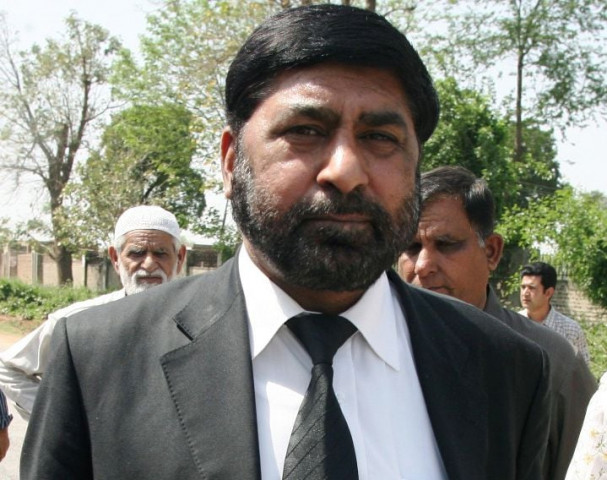You are on your own
The security cordon created by the police in and around the city in the past was as delusional then as it is now.

Two gunmen shot-and-killed public prosecutor Chaudhry Zulfiqar Ali in Sector G-9, before escaping from the scene in a car. PHOTO: AFP /FILE
The people of Islamabad are just as vulnerable to targeted killings and terrorism as they were six years back, before the first wave of terrorist attacks struck the capital city and turned it into a land of barricaded roads and hundreds of police checkpoints.
Last week, a year-long hiatus came to an end as target killers struck right in the heart of the city. Two gunmen shot-and-killed public prosecutor Chaudhry Zulfiqar Ali in Sector G-9, before escaping from the scene in a car, as opposed to the motorbikes commonly used in such incidents. Keep in mind that the car — a beat-up old taxi — could not go off road into jungles to exit the city unseen.
It had to use the barricaded roads and pass through checkpoints. Why wasn’t it stopped? Because even in the past, checkpoints have not helped apprehend any terrorists, anywhere in the city.
The security cordon created by the police in and around the city was as delusional then as it is now. Terrorists acted at will then, just as freely as they acted now. The incident underscored the fact that if you are under any sort of threat, you are on your own. Never bank on the police or the ‘security’ provided by the government.
Prosecutor Ali, the government attorney, was under threat from certain terrorist groups for over four years. A year ago, he was provided a security guard who was accompanying him at the time of the incident. The guard was injured in the attack. While Ali took all sorts of precautionary measures at his workplace and his house, he forgot to replicate the same during his travel. Perhaps he bought into the ‘security delusion’.
After receiving threats four years ago, Ali, who had been the government lawyer in the Benazir Bhutto murder, Mumbai attack and Hajj scam cases, had replaced his office doors with metal ones specially designed on security lines. Every visitor had to be approved by him before being allowed in.
However, Ali was driving his car himself which is ‘against protocol’. “This made him an easy target,” said a police official. The security guard was in the passenger seat and also became an easy target. His route to his office and the timing was predictable. He never changed it. But then Ali was not trained to avoid terrorists. In the end, he too was on his own.
For the police, it was business as usual once again. Following the incident, a joint investigation team was formed, similar to every other high profile incident in the past. Nothing came out of it. No suspect was ever apprehended by a JIT, be it the attack on former Religious Affairs minister Hamid Saeed Kazmi, who was injured in a targeted attack in 2009, or Minority Affairs Minister Shahbaz Bhatti. In similar targeted killing attempts, an army officer was killed in Sector G-11 in 2009 and two other military officers narrowly escaped attacks on their lives in similar fashion. No clue was ever found, no breakthrough was ever made in the subsequent investigations.
Before that, the police, with all its barricades and checkpoints, failed to prevent the incident. It failed to stop the terrorists from leaving the city after completing the attacks. The police’s favourite ‘counter-terrorism’ plan for over five years, road barricades are as superficial as the high walls around the city, but the cops are pointlessly persisting with it.
The deadliest terrorist attack in the city’s history took place in the presence of checkpoints. Be it 2008 Marriot Hotel bombing, the 2009 twin suicide blasts at International Islamic University Islamabad (IIUI), or attacks on the police and other law enforcement agencies from 2007 to 2010, the police’s strategy never worked.
It is high time the police revise its counter-terrorism strategy and improve upon the performance of its investigation wing, which — putting it gently — leaves much to be desired.
Published in The Express Tribune, May 13th, 2013.



















COMMENTS
Comments are moderated and generally will be posted if they are on-topic and not abusive.
For more information, please see our Comments FAQ